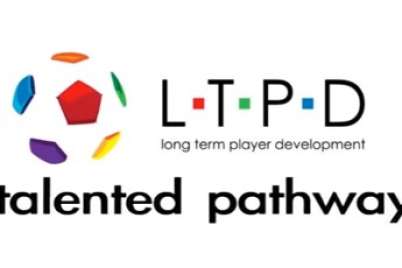
Soccer: Skills, not trophies, lead to success
Soccer is the single most popular sport by participation among kids in Canada, with nearly 20% of children and youth playing the game across the country.
With so many kids playing soccer, sports observers often wonder, why hasn’t our men’s national team been to the World Cup since 1986?
The general consensus points to two major factors in kids’ soccer in Canada. Our kids don’t get enough practice time in skills, and coaches and parents put too much emphasis on winning at young ages.
The Canadian Soccer Association has outlined Long-Term Player Development (LTPD) to make sure our kids learn the right skills at the right time. In turn, the Ontario Soccer Association (OSA) has produced an excellent video for parents to see how the LTPD approach works.
“Long-term player development shifts the emphasis away from winning at the early ages,” explains Alex Chiet, chief technical officer at OSA. “Instead, we’ll focus on improved coaching, fewer games, more time on the ball, and real skill development.”
Through the elementary school ages, LTPD recommends more practice time than game time each week, so kids develop the skills that will make them more successful in the game in the long run.
But what is success?
We often assume success means winning games and scoring goals. This may be true if you are a professional player or competing at the Olympics. However, we know that fun and personal satisfaction are even more important for children at young ages. As studies have consistently shown, kids play sports like soccer mainly to have fun and learn skills. Winning is very low on their list of priorities.
LTPD honours both the natural wishes of children and the optimal process for learning the game. At the early stages from ages 5 to 11 years, LTPD recommends that soccer programs focus on skill development and practice time with quality coaching. At the same time, LTDP recommends that soccer leagues eliminate team standings, statistics and championship trophies before the U12 age division.
Why no standings or trophies? CBC soccer commentator and ex-national team captain Jason de Vos has done a great job of explaining why. The Canadian Soccer Association also presents a clear rationale for eliminating standings below U12 age.
In short, when league standings are kept, coaches and parents tend to become preoccupied with winning at all costs. This means that some children spend entire games sitting on the bench while the best players get all the playing time to secure the win. This does nothing to develop the skills of the bench players for the long term, nor does it help them to develop a love for the sport.
League standings also mean that all players have to listen to a lot of screaming and yelling from frantic coaches and parents who want to win, and that’s clearly no fun.
When there are no league standings and no trophies, it is much easier for coaches to justify playing all of their players equally. The game outcome is a lot less important than simply letting the kids play, learn and develop for the long term.
With no league standings, coaches can also put more emphasis on skill development during practices instead of primitive tactics to get the win at age eight. Primitive tactics such as “kick and run” tend to prove grossly ineffective by the time kids reach 15 years of age, and then it’s too late to do much remedial learning and practice in real skills.
The lesson is to make sure your child plays in a quality soccer program. If you want to see what a quality program looks like, Total Soccer Systems Academy in Richmond, B.C. provides a great example.
LTPD means that young soccer players learn the right things at the right time in the right way. It promotes fun alongside skill development, and this provides kids with the best chance for long-term success in the sport.






Your intent to improve and promote soccer is appreciated and encouraged.
However, it is truly tragic that you do not realize that you are doing the opposite. Developing good soccer players is nothing new; it has been done for decades. About every country does it better than Canada.
The fallacy is that eliminating scores and standings will improve technique and game awareness. This will not happen unless the issue of teaching technique and group play properly is addressed.
In the district and club where I coach, the coaches and parents who are embracing this are the ones that show up to practices without preparation or have no clue how to improve players and teams. Hence, now they can hide their dismal results (you can not win with no technique or skill).
People who are not familiar with the game do not understand the importance of having the right competitive mindset to improve skill and game awareness. This also has to be taught and nourished and practiced. You can not suddenly tell a kid at 13 now it is okey to try to win. It is simply too late.
Yes, this country needs to teach their kids better soccer technique, but it will not improve by killing the needed competitive aspect.
The reality is that most parents/coaches do not care about developing soccer players. They only want that their kid gets babysited as they go to the mall and they come to pick up a child who has not lost (no loss = no evidence that the child is not doing things to improve). This is why this approached is being embraced. It is making suburban and middle class parents with certain social views happy.
You’re very right that we need qualified coaches to teach proper technique, tactics and competitive mindset. I know a bit about this as I have coached for 16 years with kids and youth ages 5 to 21. The stated purpose of the elimination of league standings below U12 is not to eliminate competition. I encourage you to read my article on this website “League standings or not, kids still learn to accept loss.” The point is that kids will always compete – it is entirely natural to the sport. They don’t need adults yelling at them to get motivated. Going right back to what you have said – they need coaches who teach them correct technique and tactics. But you don’t need league standings to teach technique and tactics. The competitive mindset is already there in kids. Having adults yelling at them only serves to stimulate the “fight or flight” neurological and adrenal response in the brain, which in turn preempts all higher-order brain function (e.g. decision making as a creative midfielder). Subsequently, with insufficient decision making practice, the complex neural networks necessary to support decision making do not develop (these need to be stimulated in order to develop), and we get players who are reactive and limited in their game play, as opposed to players who are intelligent, composed and creative with the ball at their feet. Again, we’re talking about kids under the age of 12. We are not talking about players in their teen years.
I completely agree. My son did soccer academy for a month in my country at an academy of the Barcelona club, the coaches are prepared there and bring their techniques. But also academies bring techniques from other places and are taugh from the time they are little I mean who love soccer feel proud to learn and wants to take it seriously from little but we need here in Canada good academies, Canada’s soccer should aim for going to the World Cup them prepare their new generations but we need to import good soccer coaches from abroad, bring academies like let’s say Barcelona club academy. I saw 5 and 4 years old boys playing competitively in my country easily ypthey can play with bigger boys here. Our 12 year old friend from Mexico, international student here in Canada said that in his country he is an average soccer player but here at his international school he is one of the best. He also said that here kids of his age are no interest on playing and scoring but yes on talking during the game (they are no serious about it). Here couches are parents, with all the respect they do the best to help but it is very different the teaching from a soccer expert. About discipline and technique on the field, sometimes we are frustrated about it. Parents that are coaches do their best but if this is no their real career, their living as coaches I do not see confidence on their teaching (techniques). Kids can have fun in a play date but when talking about any sports kids should be guided towards respect, díscipline, passion and love to learn in this case soccer. The same as Tae wondo, there coaches are serious and they can not play during class they have fun by seriously learning and archiving new belt colours. How to measure in soccer? By teaching them techniques and no just kicking the ball.